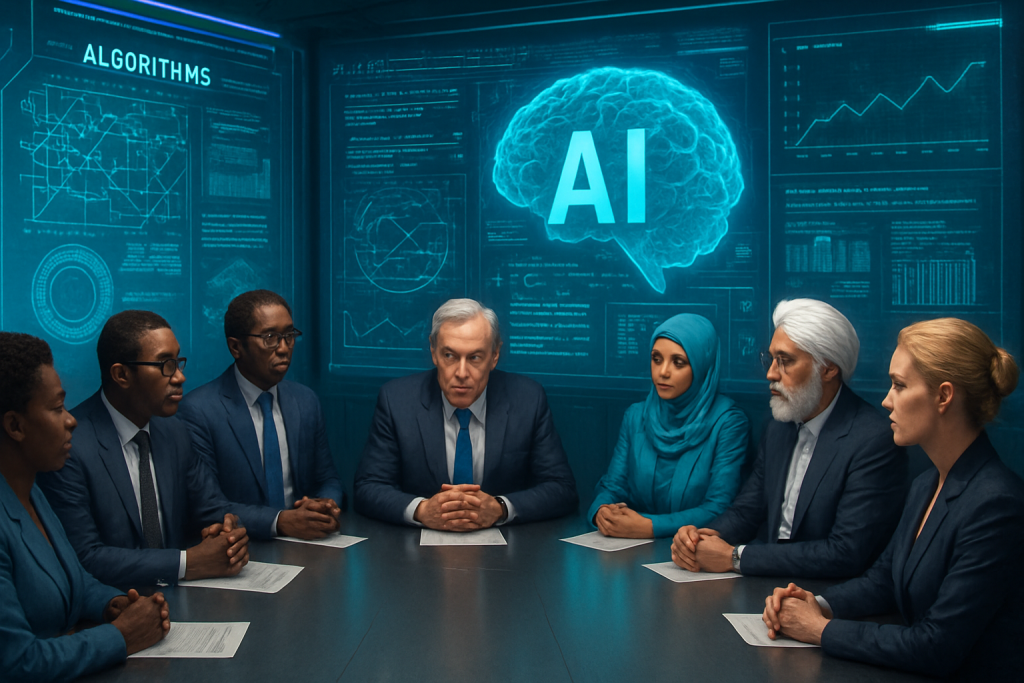The world just got a little more complicated, and a whole lot more interesting. At the World Artificial Intelligence Conference (WAIC) in Shanghai, Premier Li Qiang of China dropped a bombshell: a proposal for the establishment of a global AI cooperation organization. Think of it as the United Nations, but for algorithms and neural networks. It’s a bold move, and one that could reshape the future of AI development and deployment as we know it.
But why now? What’s the story behind this initiative, and what does it all mean for us, the users, the developers, and frankly, the future of humanity?
To understand this, we need to rewind a bit. The AI landscape has become a high-stakes geopolitical chess match, primarily between China and the United States. Both nations are vying for AI supremacy, recognizing its potential to fuel economic growth and bolster national security. It’s like the space race of the 21st century, but instead of rockets, we’re talking about terabytes of data and incredibly complex algorithms. This rivalry, however, has created some friction. Export restrictions, concerns over monopolistic practices, and anxieties about ethical considerations have started to cloud the horizon.
Premier Li’s proposal, delivered amidst the buzz of the WAIC, is a direct response to this fragmented landscape. He didn’t mince words, pointing out the significant differences in regulatory concepts and institutional rules across countries. Imagine trying to build a global internet when every country had its own incompatible HTML standard. That’s the kind of chaos we’re talking about. He also subtly, but pointedly, criticized technological monopolies that could concentrate AI development in the hands of a select few nations and companies. It’s a classic David versus Goliath scenario, but with AI as the slingshot.
The core of the proposal is a call for strengthened coordination and a global AI governance framework built on broad consensus. China, according to Premier Li, is ready to offer “Chinese solutions” to the international community. What exactly those solutions entail remains to be seen, but the implication is clear: China wants to be a key player in shaping the rules of the AI game.
What are the immediate implications? Well, for starters, it’s a clear signal that China is serious about AI and its global impact. It’s a move to position itself as a leader in AI governance, not just AI development. The WAIC, attended by representatives from over 40 countries, provided the perfect stage for this announcement, emphasizing the need for international dialogue and cooperation. Think of it as a techy Davos, but with more robots and less skiing.
But the long-term consequences are far more profound. A global AI cooperation organization could potentially standardize regulations, address ethical concerns, and facilitate international collaboration. Imagine a world where AI is developed and deployed responsibly, with shared benefits for all of humanity. It sounds utopian, but that’s the underlying vision. On the other hand, such an organization could also become a battleground for competing ideologies and national interests, potentially stifling innovation and creating bureaucratic hurdles. It’s a delicate balancing act.
The technical bottlenecks Li mentioned, such as the supply of computer chips and obstacles to talent exchange, are crucial pieces of this puzzle. AI development is heavily reliant on powerful hardware, particularly GPUs, and access to top-tier talent. If these resources are unevenly distributed or restricted by geopolitical tensions, it could hinder the progress of AI in certain regions. This organization could try to create a more level playing field, ensuring that all countries have access to the resources they need to participate in the AI revolution.
Which brings us to the philosophical and ethical considerations. AI raises some serious questions about the future of work, the nature of intelligence, and the potential for autonomous systems to make decisions that impact human lives. A global AI governance framework could help address these concerns, ensuring that AI is developed and used in a way that aligns with human values. Think of it as Asimov’s Three Laws of Robotics, but on a global scale. Of course, defining those “human values” is a challenge in itself, given the diversity of cultures and perspectives around the world.
And let’s not forget the financial and economic impact. AI is poised to transform industries ranging from healthcare to transportation to finance. The companies that lead the way in AI development stand to gain a significant competitive advantage, while those that lag behind risk being left in the dust. A global AI cooperation organization could influence the flow of investment, the development of new markets, and the distribution of economic benefits. It’s a high-stakes game of economic poker, and the pot is the future of the global economy.
Ultimately, Premier Li’s proposal is a bold attempt to navigate the complex and rapidly evolving landscape of AI. It’s a call for cooperation in a world that often seems driven by competition. Whether it succeeds or not remains to be seen, but one thing is clear: the future of AI is not just about technology; it’s about politics, ethics, and the very future of humanity. And that’s a conversation we all need to be a part of.
Discover more from Just Buzz
Subscribe to get the latest posts sent to your email.


